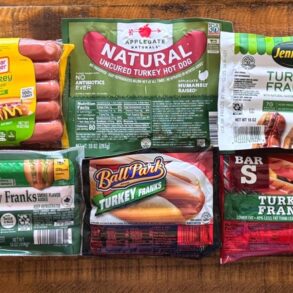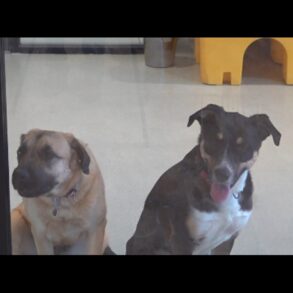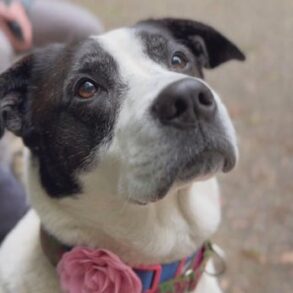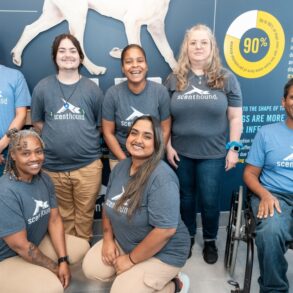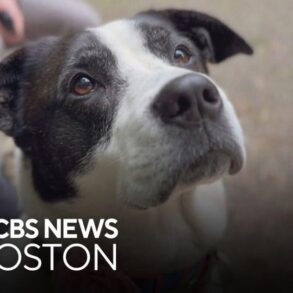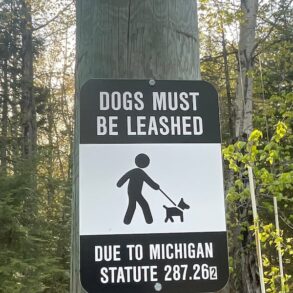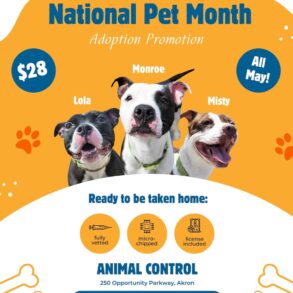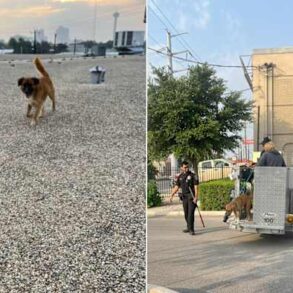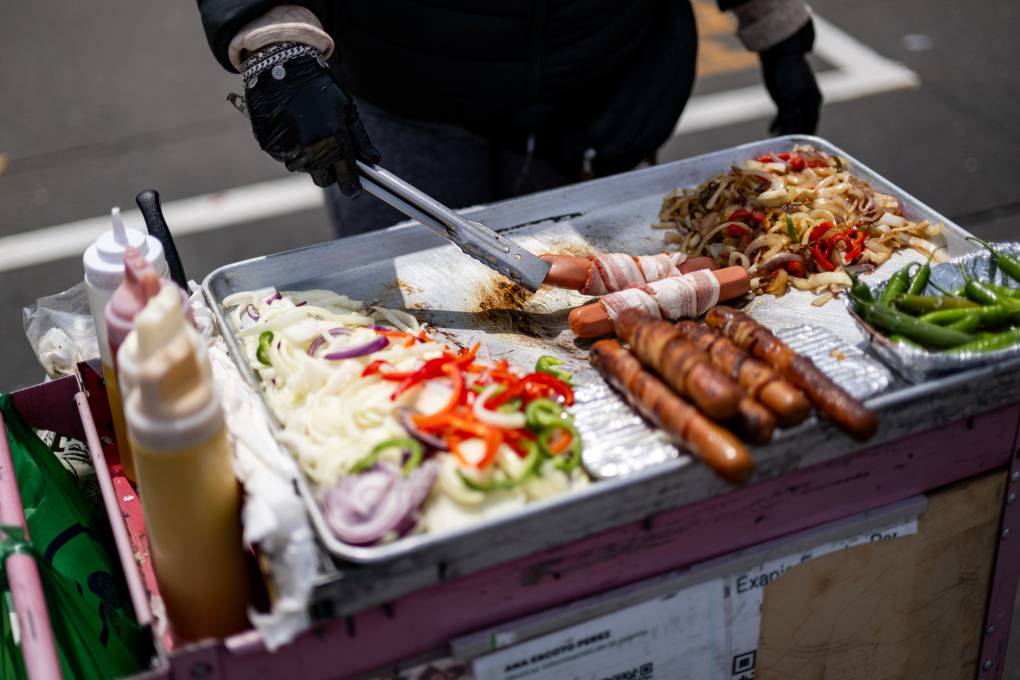
Episode Transcript
This is a computer-generated transcript. While our team has reviewed it, there may be errors.
Katrina Schwartz: You smell them before you see them.
Exania: Hot dog, hot dog, hot dog!
Katrina Schwartz: The scent is almost heavenly and they’ve become a Bay Area staple outside of sporting events, concerts, and late night bars. We’re talking of course about the bacon-wrapped hot dog. Chances are, if you live in the Bay Area, you’ve seen people selling this iconic street food.
Olivia Godfrey: It’s like an ice cream cart, but for hot dogs with just like their griddle on top and they always just have a stock of bacon-wrapped hot dogs, like ready to go.
Katrina Schwartz: That’s Olivia Godfrey. She grew up in Alameda, now lives in Oakland, and works as an usher at local venues like the Fox and the Greek Theatre. It’s in those places that she started to notice just how abundant these vendors are.
Olivia Godfrey: The hot dog people are everywhere. You see them every time you leave a venue, anytime you’re walking around the city.
Katrina Schwartz: She felt like their numbers had grown in recent years, and that got her wondering.
Olivia Godfrey: How much money do they make every year? Kind of like, what’s the history of them? How do they organize? I’d love to know how they like kind of came to be and like how they’ve become such a Bay Area staple.
Katrina Schwartz: I’m Katrina Schwartz, and today on Bay Curious, bacon-wrapped hot dogs! The roots of this culinary tradition, who sells them, what it’s like to do this work, and why some city governments are trying to stop them. Stay with us.
Katrina Schwartz: These days, it seems like bacon-wrapped hot dog vendors are anywhere there’s a crowd, concerts, sports games, touristy areas. It’s not uncommon to see dozens of people selling them from identical carts. For some, the relatively cheap, easy salty delicious snack is just what they’re craving. Others see issues with the fact that many of these vendors are unpermitted. KQED’s Azul Dahlstrom-Eckman looked into the controversy surrounding this porky problem, and how bacon-wrapped hot dogs became such a part of Bay Area street food culture.
Exania: Hot dog, amigo hot dog!
Azul Dahlstrom-Eckman: It’s 11 a.m. on a Saturday and Exania just got her first customers of the day. Her hot dog cart is one of about a dozen, parked outside the Alcatraz Ferry Terminal on San Francisco’s Embarcadero.
Exania: Ketchup, mustard, mayo?
Customer: Umm, I’m not going to do any of that.
Exania: Only onions?
Customer: Uhhh, yeah.
Exania: Okay.
Azul Dahlstrom-Eckman: Nick and Cameron Nelson just got off the Alcatraz Ferry and they’re hungry.
Customer: Oh, look at that.
Azul Dahlstrom-Eckman: Even my mouth starts to water as we watch the onions, peppers, and bacon-wrapped hot dogs heat up over a propane flame. Exania skillfully assembles the greasy delicious mess onto a bun and hands it over.
Customer: Do you take cards?
Exania: Yeah.
Azul Dahlstrom-Eckman: For $10 a pop. Nick and Cameron walk away with a quick bite to eat. Nick is stoked.
Nick Nelson: I mean, all the onions on them are cool. I didn’t put all, like, the mayonnaise and ketchup on that, but I just, you know, who doesn’t like a bacon-wrapped hot dog? I feel like that’s, that’s really good, so.
Azul Dahlstrom-Eckman: Cameron, the dad, also appreciates a cheap meal in an expensive city.
Cameron Nelson: Yeah, going out to restaurants, this is sitting down, you’re looking at $80, can just keep walking and keep doing what we’re doing for $20.
Azul Dahlstrom-Eckman: They amble off towards Pier 39. But Exania’s got work to do. We’re only using her first name due to fears about her immigration status.
Exania: Tengo tres años de vender acá y pues me siento bien.
Azul Dahlstrom-Eckman: She says she has been selling at this exact spot for the past three years. Basically the whole time she has been in the United States.
Exania: Cuando nosotros entramos acá por migración, nosotros pedimos asilo.
Azul Dahlstrom-Eckman: She says she left her home in Nicaragua in 2021, and made an asylum claim upon getting to the U.S. She says she was frightened to make the journey, but a lack of work and the political situation there left her few options.
Exania: Tenemos miedo, porque tú sabes cuántas cosas uno pasa para venir a este país.
Azul Dahlstrom-Eckman: She’s working to send money to her mother and three children back home in Nicaragua. But she says she’s also paying back the debt to the people who helped bring her here.
Exania: Aqui nosotros venimos endeudada. Con una deuda que dejamos en nuestro país y es una deuda que tenemos que pagarla, sino que quedamos en la calle. Mi familia quedaría en la calle.
Azul Dahlstrom-Eckman: To pay for the trip, she says she took out a $14,000 loan. According to Exania, this loan wasn’t from a bank, but from a person. To get the loan, she had to use her mother’s house as collateral. If she doesn’t pay every month, the person who loaned her the money threatens to take her mom’s house. She showed me a WhatsApp thread where they keep a running tab. She still owes about $12,000.
Exania: Es algo muy, muy penoso, pero es la realidad.
Azul Dahlstrom-Eckman: She says when she first got to the U.S., the people who brought her here supposedly had a job for her. But she says she was treated badly, working long hours selling things like jewelry and ponchos on the street and making just $600 a month.
Exania: Bajo lluvia, bajo sol, con hambre, con frío que tuve trabajando y en la temporada que yo le estuve trabajando a ella y yo me enfermé muchísimo.
Azul Dahlstrom-Eckman: She started selling bacon-wrapped hot dogs, she says, when a friend told her she was being exploited, and that she should start her own business.
Exania: Y me dice no le sigas ayudando a ella. Te está explotando. Ella está viviendo de ti. No sé. Y entonces, pues ya fue cuando él me animó a meterme a este negocio.
Azul Dahlstrom-Eckman: She says a friend sold her a cart for cheap, showed her the ropes, and she got started selling hot dogs. Exania says now she works for herself, she owns three hot dog carts and sometimes loans them to people who need work. They split the earnings 50,50. She also drives a van to move them all around.
She says she feels good working at Pier 33, but sales can be fickle. In winter, it’s slow, she might only sell one or two hot dogs in a day, barely enough to cover parking and supplies. On a good day, she could sell more than 20, which would get her over $200 in a day. She buys her ingredients at stores like Restaurant Depot and chef stores, where she can buy 50 hot dogs for less than a dollar a piece.
The area around the Embarcadero where Exania works is kind of like one big tourist attraction. Businesses of all kinds compete with each other. Of course there’s restaurants and museums, but there are also people who work outside.
Street Entertainer: Everybody’s say, woo. Everybody’s say, wow. Ladies and gentlemen….
Azul Dahlstrom-Eckman: And pedicabbers who earn their living by giving people bike rides up and down the wharf.
Erik: Rides up to the sourdough, the sea lions, the chowder.
Azul Dahlstrom-Eckman: And I quickly learned, there’s tension between the pedicabbers and the hot dog vendors. As I’m interviewing Exania, one pedicab driver approaches me.
Pedicab Driver: Are you going to go and interview legitimate businesses who pay taxes?
Azul Dahlstrom-Eckman: Am I going to?
Pedicab Driver: Yeah, I would hope you do. I’d hope you go to the restaurants that have been closed.
Azul Dahlstrom-Eckman: The atmosphere becomes pretty tense. He asks me if I am going to interview legitimate businesses who pay taxes.
Pedicab Driver: These guys cost me about $5,000 a year. How do they, how do they? Because when they buy a hot dog, they don’t go to the wharf. Okay? Yeah, I pay taxes. I pay for a license. We pay permits. F*** these people.
Azul Dahlstrom-Eckman: It’s a pretty open display of hostility. I can tell there is some bad blood. But I wanted to find out why so I asked another pedicab driver. He offered to fill me in, but suggested we go somewhere quieter.
Erik: We’re going for a pedicab ride.
Azul Dahlstrom-Eckman: Where better to talk, than the back seat of a pedicab?
Erik: I had a passenger once describe it as, uh, it’s like riding a couch down the sidewalk.
Azul Dahlstrom-Eckman: This is Erik. He told me he’s been a pedicabber for eight years. He declined to give his last name because of fear of repercussions to his business if he spoke out against the hot dog vendors.
Erik: They’re playing their music loud. They’re making a lot of noise soliciting the selling of hot dogs. Um, and they’ve crowded out the prime spot.
Azul Dahlstrom-Eckman: You might be thinking how would the pedicab business be affected by bacon-wrapped hot dog vendors? Well, Erik says many of his best customers are hungry tourists headed to eat out. Pier 33 used to be his number one place to pick people up and make some money.
Erik: We’re not just bike riders, we’re tour guides.
Azul Dahlstrom-Eckman: But around 2021, as the COVID-19 pandemic started to ease, he says bacon-wrapped hot dog vendors started showing up in large numbers outside the terminal.
Erik: Part of our job, part of our challenge is to engage people. So they’ll get in the bike with us. And, um, if they’re playing their music really loud, so they can’t hear us or if they’re yelling hot dog, hot dog, hot dog, so loud that they can’t hear us, then yeah, we, we get drowned out. We get, uh, moved to the back row.
Azul Dahlstrom-Eckman: Instead of getting a ride to lunch at a restaurant with a pedicabber, he says people at the ferry terminal started choosing to buy a bacon-wrapped hot dog instead, and just keep walking. Much like Nick and Cameron Nelson did at the beginning of this story.
Erik: And that not only hurts us, the pedicabbers, but that hurts all the restaurants at Pier 39, all the restaurants down here, all the restaurants up at North Beach.
Azul Dahlstrom-Eckman: Erik says it’s unfair that many, if not all bacon-wrapped hot dog vendors don’t carry any kind of license with the city.
Erik: We all have permits, the bikes have permits, we’re doing everything by regulation and they’re not.
Azul Dahlstrom-Eckman: Erik pays a yearly fee of $347 for a pedicab operator’s license. And his employer likely spends more. Other brick and mortar shops on the wharf have to pass health inspections and pay for building permits.
Erik: So there’s a lot of local businesses that are paying the price for those people to be out there.
Azul Dahlstrom-Eckman: Erik says he supports the hot dog vendors’ right to make a living and hustle on the wharf just like he does. But he says it has to be fair.
Erik: So find a way to do it right and legal and in a healthy, safe way. I’m all in, but that’s not what we have today.
Azul Dahlstrom-Eckman: We take a ride back to Pier 33.
Erik: Rickshaw rides, rides up to where you should be having lunch.
Azul Dahlstrom-Eckman: Erik points out that the sidewalk outside the Ferry Terminal is covered in grease splatters from all the hot dog carts. He raises another complaint commonly leveled against the hot dog vendors. Many don’t have adequate handwashing and refrigeration, and that’s a violation of food safety laws. Just then, something illustrates his point.
Erik: Oh, look, look, look. See what happened over there. That knife hit the ground. It’s on that greasy sidewalk and wipe it with a napkin and let’s cut some more tomatoes or onions or whatever. That’s, it’s a health issue. Nobody, nobody at the city is doing anything about it.
Azul Dahlstrom-Eckman: Erik clearly isn’t satisfied with how the city is responding, but since 2022, the city has been conducting regular inspections of unpermitted street vending seven days a week, including food vendors. That work is done by a multi-agency task force, which includes the San Francisco Department of Public Health.
Dr. Susan Philip: The main issues are, are foodborne, foodborne illness, and that that is what we are really concerned about.
Azul Dahlstrom-Eckman: Dr. Susan Philip is the director of the population health division at the San Francisco Department of Public Health. She says the main purpose of these inspections is to make sure that food vendors are in compliance with state health laws. Things like having adequate refrigeration and handwashing.
Dr. Susan Philip: Which many of the carts do not have those capabilities.
Azul Dahlstrom-Eckman: I’ve seen pictures on social showing hot dogs for sale kept in moldy cardboard boxes below the carts. Dr. Philip says when DPH workers do unpermitted vending inspections, they lead with education and information about how to come into compliance with the health code. But if vendors are not willing to do that, city workers can confiscate their food and equipment.
Dr. Susan Philip: Because we want to decrease the chance that It will end up being sold to someone who could potentially get sick.
Azul Dahlstrom-Eckman: She says in a roughly year and a half period, 239 vendors had an enforcement action carried out against them, where the city impounded unsafe food or unsafe equipment. The department does not keep track of how many of those actions related specifically to bacon-wrapped hot dog vendors. Dr. Philip said these inspections aren’t just about food safety, city teams also look out for people selling stolen goods, or people blocking the public right of way.
Dr. Susan Philip: That is why this task force came about. And it really also is because of this, uh, increase, increase in overall vending that has been occurring in the city, um, as you know, the result of some of the, the changes in the state law.
Azul Dahlstrom-Eckman: Senate Bill 946, passed in 2018, broadly decriminalized street vending throughout the state. And SB 972 which went into effect in 2023, reduced enforcement of sidewalk food vending from a criminal offense to one that can only incur administrative citations.
Dr. Susan Philip: So that timeline is, is consistent with some of the increase that we’re, that we are seeing.
Azul Dahlstrom-Eckman: So our question asker Olivia, is right: there has been an increase in street vending over the past few years. She also wanted to know where these hot dogs came from and while you might think of a hot dog as the classic all American food, to understand the origins of bacon-wrapped hot dogs, you have to check out Mexico.
Bill Esparza: It has been one of my goals as I travel to new Latin American countries all the time is to try their local version of the hot dog and, and I’ve never been disappointed.
Azul Dahlstrom-Eckman: This is Bill Esparza, he’s a food writer, senior contributor at Eater LA, and a bit of a hot dog expert.
Bill Esparza: I went to Brazil and I was having hot dogs there and there’s are also very full of ingredients and wild toppings, you know, they put quail eggs on the hot dogs in Colombia.
Azul Dahlstrom-Eckman: He says just south of the Arizona border in the Mexican State of Sonora, there is an especially famous type of hot dog. It’s known as a Sonoran dog, or a Dogo as the locals call it.
Bill Esparza: It’s like really important to them that, that the hot dogs are just like this. They’re like this big meal with all these flavors.
Azul Dahlstrom-Eckman: It’s got a big wheat bun, think like a lobster roll. But what really makes it stand out are the condiments people put on top. Here are just some them:
Bill Esparza: Canned mushrooms, pickled jalapenos , liquid cheese, ruffles potato chips, black olives, sweet corn.
Azul Dahlstrom-Eckman: The list goes on. Esparza says as best as we can tell, the arrival of the hot dog in Sonora can be traced back to one person. A Sonoran man named Don Cipriano Lucero, who opened a restaurant called Cafe KiKi in Hermosillo in 1947.
Bill Esparza: So Don Cipriano Lucero brought the hot dog back from the United States and, um, started serving them there.
Azul Dahlstrom-Eckman: Don Cipriano served regular hot dogs, American style. But while Americans might be content with just a little mustard or ketchup, Esparza says the locals probably found it a little boring.
Bill Esparza: Mexicans want spice and also Mexican very much like sweet.
Azul Dahlstrom-Eckman: And there’s a Spanish word for what he says people did next. Tropicalizado. It means tropicalized. Over the years people in Sonora perfected the hot dog for their taste buds. They made the American hot dog to be more, well, Mexican. By adding spice, flavor, and richness.
Bill Esparza: When the bacon came on, who knows, but it started to become a thing in the colleges in, uh, probably starting in the sixties.
Azul Dahlstrom-Eckman: Just as hot dogs were brought from the United States to Mexico, it was only a matter of time before dogos that had been tropicalizado and made it back to the United States.
Bill Esparza: So it’s very possible that once hot dogs became popular in Sonora, that somebody came and brought them to Tijuana because those, those people are connected. Those two states are so connected.
Azul Dahlstrom-Eckman: Once in Tijuana, people traveling from Mexico into California might bring this culinary tradition with them. When it makes this cross-border journey, the dog changes again. Shedding the big wheaty bun and all the extra toppings for a pared down version you can see on Bay Area streets today.
Bacon-wrapped hot dogs are celebrated in places like Hermosillo, but back at Pier 33, the vendors are constantly on the lookout for city inspection teams.
Johanna: ¿Alo? Aquí bajo, no, no, hay aquí venta.
Azul Dahlstrom-Eckman: I’m speaking with a bacon-wrapped hot dog vendor named Johanna when she gets a call from another vendor down the street. They exchange information about sales, and also if anyone has seen city inspection teams around.
Johanna: No amiga, esta más abajo, por que como ayer cayó abajo, entonces nos avisaron que había la cuidad y nos movimos todo.
Azul Dahlstrom-Eckman: She asked to use her middle name due to fears about her immigration status. Johanna says it varies how often the city inspection teams come, sometimes as many as four times a day, sometimes not at all.
Johanna: Ayer cayeron dos veces y anteayer cayeron cuatro veces.
Azul Dahlstrom-Eckman: There’s this strange sort of rhythm to the area around where the vendors work. It’s almost tidal. Every 30 minutes or so, a ferry from Alcatraz arrives at the pier, and drops off a boatload of tourists. As they exit the terminal, the pedicabbers and the hot dog vendors hock their wares, rides to the wharf, a quick snack.
Johanna: Algunos barcos son buenos.
Azul Dahlstrom-Eckman: Johanna says some boats are good, People are hungry. But others, nobody buys anything. Once the tourists leave, a strange quiet settles over the place. Vendors idly click their tongs. People joke with their neighbors, the pedicabbers take a nap in the back of their cab. They wait for the next boat. But city inspection teams can also come at any moment. When that happens it’s chaos.
Johanna shows me a video of one enforcement action by the city in March. City staff roll up in vehicles, Johanna and others run away, pushing their carts ahead of them. Johanna got caught, city workers took her cart, and that’s the third time that’s happened in about a year of vending. She says she had a panic attack and city workers called an ambulance for her.
Johanna: Llamaron a los bomberos primero, vinieron y me tomaron el pulso y dijeron de que no, que y había entrado, dicen en un pánico.
Azul Dahlstrom-Eckman: When the inspectors confiscate a vendor’s cart, they take it to SF Port property where it’s held for 30 days. Vendors can try to get their carts back, but SFDPH can issue hefty fines, almost $3,000 in some cases.
Exania: Preferimos que se pierda.
Azul Dahlstrom-Eckman: Standing next to Johanna is Exania. Exania says when her cart gets confiscated, she just buys a new one.
Exania: Porque igual compramos otros los quitan. Aunque vayamos a pagar esa multa, vienen de nuevo y los quitan entonces, ¿qué hacemos?
Azul Dahlstrom-Eckman: She says even if she was to pay the fine and get her cart back, the city would just come and take it again, only this time with a heftier fine.
Exania: De todas maneras nos agarran nuestros nombres y en otra nos viene una multa más cara.
Azul Dahlstrom-Eckman: She shows me the Amazon listing for these exact carts. It’s a $50 tool cart, but outfitting it with a stove and cooktop and everything else they need brings the price up to around $450. Exania says it can take a while to get the money and supplies together.
Exania: Hay que hacer un proceso primero a juntar dinero para armarlo, porque a veces cuando nos dejan sin nada, imaginate, tenemos que ver por otro lado, para comprar el material
Azul Dahlstrom-Eckman: But at the end of the day, she says this is her only option for work. She says everywhere else she has tried, they want proof of residency. Something she can’t provide. So she keeps working here.
Exania: Es la única manera que tenemos para trabajar. Sí, porque donde quiera que vayamos, nos piden papeles.
Azul Dahlstrom-Eckman: Exania says she’s well aware that she’s working without permits from the city, but says she tries to follow the health code as best she can.
Exania: Compramos diarios lo que podemos vender y lo que ya sobra, lo metemos a la hielera, a la refri, para que no se nos dañe.
Azul Dahlstrom-Eckman: She brings fresh ingredients, the hot dogs are frozen at the start of the day, and she refrigerates what she doesn’t sell. Exania says if she could say one thing to the city, it would be this:
Exania: Que nos dejen de maltratar, de seguirnos. Porque aquí nosotros trabajamos decentemente, no le robamos a nadie, no dañamos a nadie.
Azul Dahlstrom-Eckman: Stop treating us badly. We’re just here to work decently. We’re not robbing anybody, and we’re not hurting anyone.
After all this, I caught back up with Olivia Godfrey, the question asker. I told her about Exania, and the pedicabbers, and the health department, and the history of bacon-wrapped hot dogs, and everything else. When she asked this question, she came from a place of wanting to know how to support these vendors.
Olivia Godfrey: I think we should be able to support our community around us.
Azul Dahlstrom-Eckman: But I raised the pedicabbers’ concerns, that many local businesses say they’re hurting because of these vendors. And aren’t they also part of our community?
Azul Dahlstrom-Eckman: How can we support both? Or like, like do you think that like supporting a bacon-wrapped hot dog vendor is to the detriment of other businesses?
Olivia Godfrey: Oh man, that’s so tough.
Azul Dahlstrom-Eckman: I also asked her about the food safety aspect. Knowing that these hot dogs likely weren’t up to the food code, did she feel safe eating them?
Olivia Godfrey: Oh, no, that’s definitely something that you’re aware of, of like, you might take your chances on like maybe not feeling well afterwards.
Azul Dahlstrom-Eckman: I know what she means, growing up in San Francisco, my friends and I called them Danger Dogs.
Azul Dahlstrom-Eckman: Knowing what you know now, do you think that you would still buy a bacon-wrapped hot dog?
Olivia Godfrey: Yes, definitely. I kind of sympathize with people like the industry or the other folks in that like Pier 39 area that might be struggling because of this, but where I’m frequenting them is like concert venues and things like that. And I’ll of course support those folks because who doesn’t love a good bacon-wrapped hot dog after a concert?
Azul Dahlstrom-Eckman: There’s some people who definitely don’t love them. But the bacon-wrapped hot dog has undeniably become an iconic Bay Area Street food.
Katrina Schwartz: That was KQED’s Azul Dahlstrom-Eckman. Bay Curious is made in San Francisco at member-supported KQED. Our show is produced by: Gabriela Glueck, Christopher Beale, and me, Katrina Schwartz. With extra support from Alana Walker, Maha Sanad, Katie Springer, Jen Chien, Holly Kernan, and everyone on team KQED. Some members of the KQED podcast team are represented by The Screen Actors Guild, American Federation of Television and Radio Artists. San Francisco Northern California Local.
Thanks for listening. Have a great week!
This post was originally published on this site be sure to check out more of their content.








